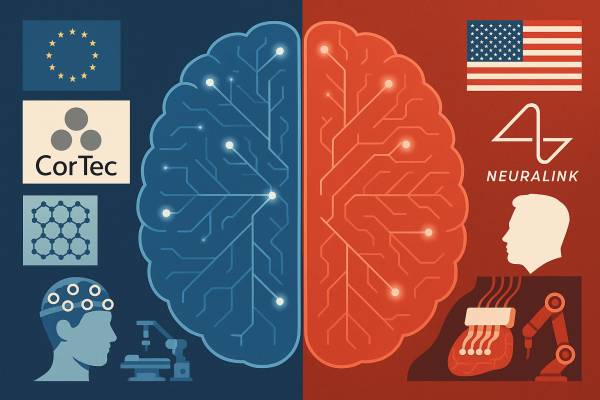China has launched the first human clinical trials of a brain-computer interface that directly connects to the brain. This so-called invasive technology, which allows thought control through a device implanted in the brain, has so far been mainly limited to research laboratories. Now, for the first time, it is being tested on humans in China, using a device developed by the Centre of Excellence for Brain Sciences and Intelligent Technologies in Shanghai.
The first participant in the trial will be a man paralysed from the neck down as a result of an electric shock 13 years ago, who received the implant in March 2025. A few weeks after the procedure, the patient was able to use his mind to control a computer and play games such as car racing and chess. Initial feedback suggests that there were no infections or malfunctions while using the device, and the patient reported that using the device made him feel like he could move again.
The longer-term aim of the project is to enable the patient to control not only computers but also, for example, robotic arms, thus increasing his independence and quality of life. The researchers hope that the device will also be applicable to other patients with severe mobility impairments, such as patients with total spinal cord injury or muscular atrophy.
According to Chinese government news reports, the new implant may be technologically more advanced than the US development of Neuralink, particularly in terms of the size and flexibility of the electrodes implanted. The electrodes are reported to be smaller and more flexible than previously known solutions, which could benefit patients by making the device less stressful on brain tissue and less noticeable. The implanted system is about 26 millimetres long and less than 6 millimetres thick.
However, comparisons that automatically place the new Chinese system above other international developments that are currently considered the most advanced should be treated with caution. Long-term effects, reliability and safety of similar devices can only be assessed after years of data collection and thorough clinical testing.
The system is expected to receive the necessary regulatory approvals in China by 2028. The research team says the device's roll-out could improve the quality of life for millions of people who currently live with severe mobility impairments.
The news is noteworthy because other Chinese developments, such as the Beinao brain-computer interface, were also at an advanced stage. However, the current trial is the first large-scale study on a human subject in China to be conducted in a clinical setting.
The direct link between the brain and the computer is seen as a technological breakthrough, but its application in the long term raises a number of ethical, medical and social questions. In any case, the current results in China show that the field is developing rapidly and that in the future such devices could be of real help to those who are currently almost completely excluded from physical self-determination.



















